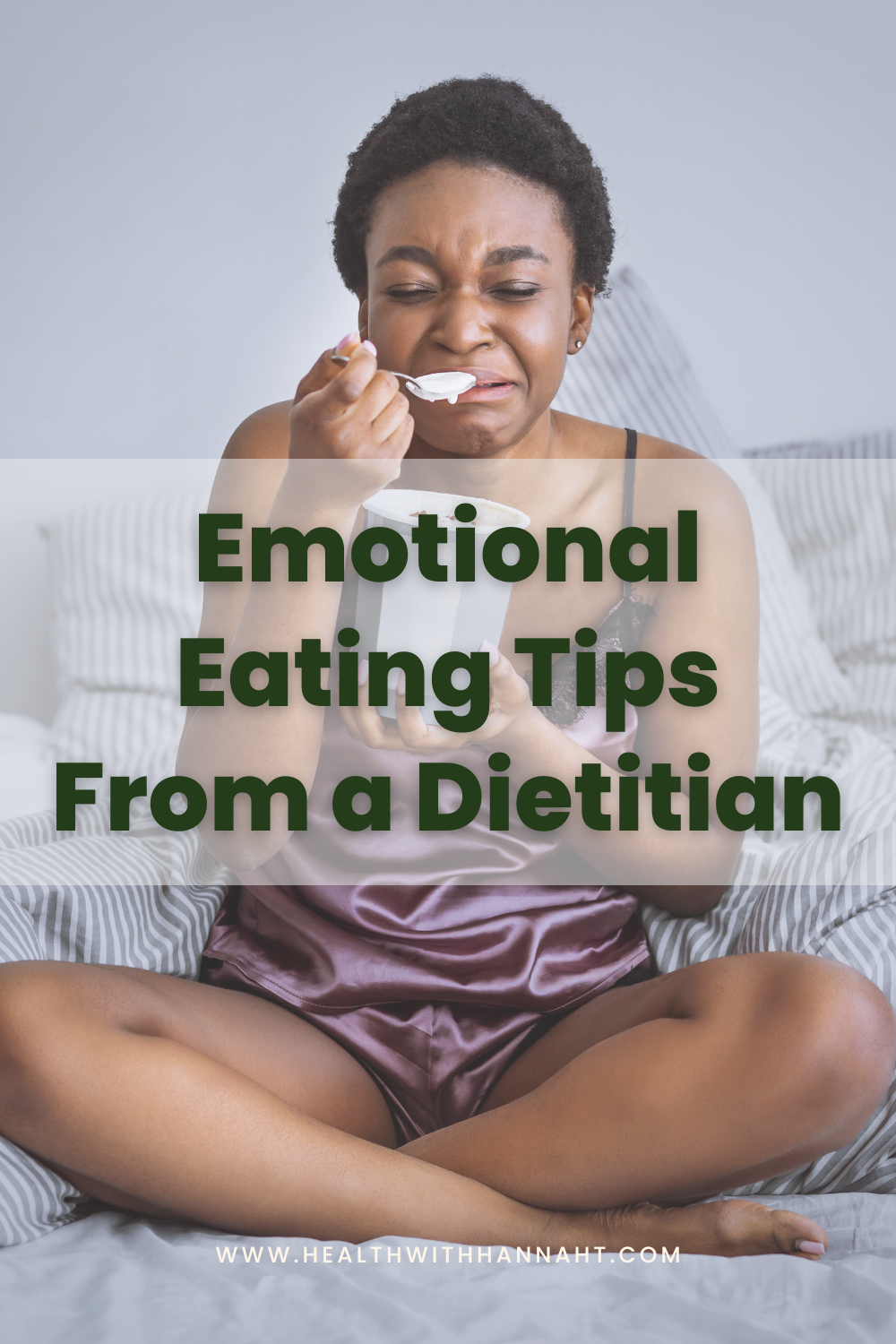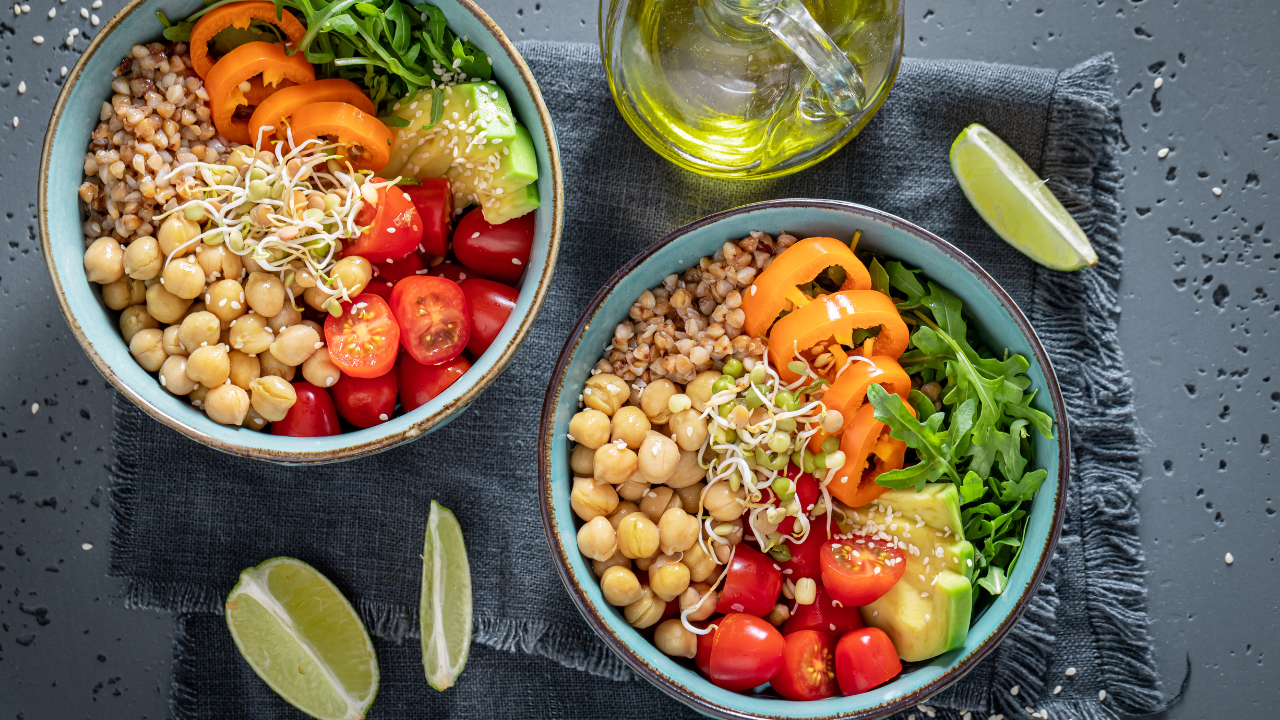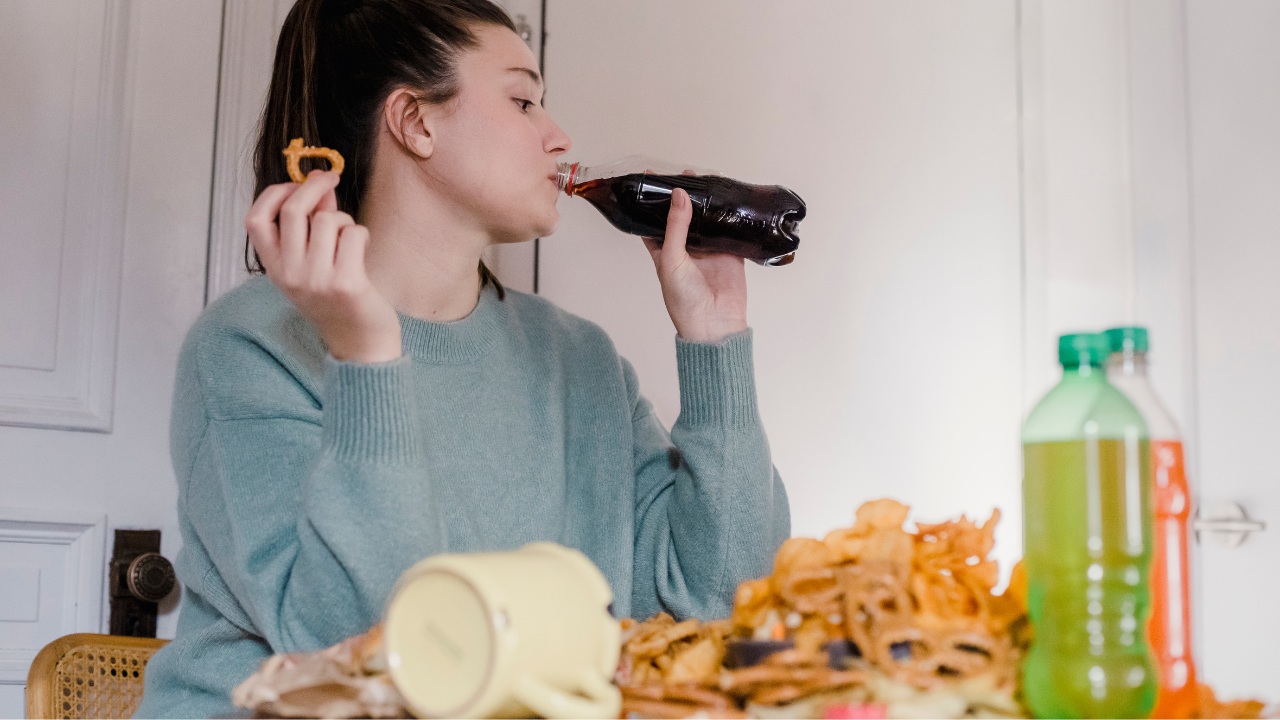Emotional Eating Tips from a Dietitian
It may come as a surprise to you to learn that emotional eating is a normal part of eating. Emotional hunger is one of the four types of hunger.
Most of us have eaten in response to an emotion rather than physical hunger cues at some point. Stress, anxiety, loneliness, boredom, anger (all common triggers for emotional eating) are feelings we all experience throughout life. Just part of being a human!
Food may distract us or numb us for a little while, but if we want to learn to manage our emotions in a healthy way, we need to learn how to apply different coping mechanisms (which can include eating).
If you’re new here, hello and welcome! My name is Hannah and I am a non-diet dietitian here to help you improve your relationship with your food and finally find food freedom.
How to eat emotionally in a positive way
Sometimes eating really can make us feel better! It’s okay to eat emotionally! The important factor is choice. Are you making an intentional decision to soothe with food or is your emotional eating reactive and impulsive?
@dietitianhannah Replying to @myosotis_6 will eating these pumpkin brownies get rid of my problems? Nope. Will eating them make me feel a little bit better in the moment? Yup. It’s okay if food is used as a coping strategy, it just won’t feel good if it is your ONLY coping way to cope with your emotions. Looking for more support? Join The Nutrition Reboot Membership, my exclusive diet-ditching club. #emotionaleating #foodfreedom #intuitiveeating #dietitiantips #dietitiansoftiktok #dietitianhannah ♬ original sound - Dietitian Hannah
Here are some examples of how I sometimes choose to eat emotionally:
Baking when feeling bored.
Ordering a pizza and watching TV with my husband after a stressful day.
Going to a coffee shoft with a friend if I’m in need of some connection.
Getting take-out with co-workers rather than eating the lunch I had packed.
Eating popcorn and watching The Office alone with my dog to recharge after an extroverted day - introverts gotta recharge with alone time and sometimes a snack helps with this!
Overcoming recurrent, impulsive emotional eating
Emotional eating won’t always be the healthiest way to cope, however. So how to we stop emotional eating if we are doing it all the time?
First, check in with yourself regularly and ask yourself if you are meeting your basic needs. This is step one!
Next, note your unique triggers for impulsive emotional eating. Here’s some common ones:
Lack of sleep
Poor work-life balance
Not eating enough
Poor stress management
Overexercising
Next, identify and feel your emotions. Ask yourself what emotion you are feeling and give yourself permission to feel the emotion rather than immediately trying to suppress it.
In the moment, ask yourself if it is “head hunger” or biological hunger. If you are truly hungry, honor this hunger and eat! When you find yourself searching for food when you know it is emotional eating and not biological hunger, take time in the moment to pause. Ask yourself what you are feeling. If you are unsure what you are feeling, spend some quiet time writing in a journal, voice recording on your phone. If it would help to have someone on the other end of your thoughts, call a friend that you trust.
Once you identify the stressor, ask yourself what you need. Sleep? A hug? Intellectual stimulation? It’s important to note that food cannot satisfy any of these needs. This is where having a self-care game plan will come into play!
Make a self-care tool box
Have a list of ways you can cope with certain emotions if you do not wish to choose food as a coping tool in that moment. Write this down or use the notes section of your phone to make your tool box.
Just like a tool box, you would not use the same tool for everything. It’s best to have a variety of tools to choose from. Categorize your tool boxy by emotions that you commonly feel. Here’s some example emotions and possible ways to cope.
If you need soothing or calming
Try deep breathing exercises
Take a bubble bath
Make a soothing music playlist that you can turn to
Schedule a massage after a known upcoming stressor
Do yoga/stretching or try guided meditation
Bake something yummy
Light a candle or use essential oils
If you need laughter or joy
Watch funny videos/shows (I love The Office, Schitt’s Creek, Friends, Parks and Rec, and New Girl)
Play with your dog or your kids
Dance! Make a happy dance playlist
If you need connection/you are feeling lonely
Text or call or facetime a friend
Do something fun with your partner, friend, or family member
If you need energized/you are feeling tired or sluggish
Go for a walk
Drink some coffee or tea
Eat your favorite snack that gives you energy - carbs!
Make a pump-up playlist
Take a short nap
Bottom line
First and foremost, if you are hungry - eat! Emotional eating can be worsened by physical hunger and undernourishment.
If you ever find that you want to eat even if you don’t feel hungry, that’s normal and expected. After all, you aren’t a robot! You are a beautiful, complex, dynamic human.
If you struggle with impulsive and recurrent emotional eating, don’t be afraid to ask for help and seek support as needed.
































